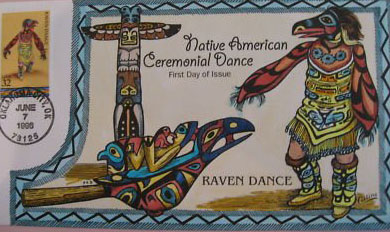And so, the raven once known as Munin, or Memory, one of the pair of legendary ravens of the Norse god Odin, spent his last few hours on this earth in a barn in a green plastic milk crate, guarded by a yellow retriever and fed on homely hamburger, unable to remember anything except the name of his lost brother Hugin, or Thought, for whom he called all the way to the end.
Read the full story of the A Boy and A Crow by Jane Wolfinbarger
Artist: Unknown
-
Recent Posts
- A Raven Project – Tapping at Your Chamber Door
- Taking Up Residence at Bancroft Manor
- A Raven Crown
- Origami Ravens for Halloween
- When I Am Dead
- A Creation Myth
- Raven Mocker
- Raven Fools Crow
- Art of Bill Reid
- I Want One Too
- Finishing Touches
- A Popular Image
- The Soul Rests Eternal
- Voice of the Raven
- The Twa Corbies
-
A Murder of Ravens
 The Rookery features the work of a group of inter generational, international, creative women who have worked in Lemuria with Heather Blakey, gaining their 'raven wings' in the process.
The Rookery features the work of a group of inter generational, international, creative women who have worked in Lemuria with Heather Blakey, gaining their 'raven wings' in the process. -
A to Z of Alchemy

The Lemurian Abbey, which lies beyond the Glastonbury Tor, is strictly restricted to members of the Order of Soul Food, to those votaries who have committed themselves to Making Art A Daily Practice and to building The Lemurian Abbey Community. This is not a religious order and welcomes people of any faith.
During 2006 Abbey Residents worked collaboratively on the A to Z of Abbey Alchemy. Just click on the individual letters to find the tasks.
-
Virtual Chocolates

If you have an artist, a dreamer, a dancer, a mythologist, an imagineer, a writer amidst your clan, make sure to nourish their creative spirit by sending them a box of Chocolates from the Soul Food Cafe. But be cautioned! These hand filled chocolates are totally addictive and may change lives.
Childhood is a state or phase of imaginative existence, the phase in which the world of imagination is still a brave new world and yet reassuring and intelligible.
The strictly non-fat chocolate from the Soul Food Chocolate Box is full of projects and material to help us return to that wondrous kingdom where imagination and creativity rule. The special fillings focus on celebrating childhood joy, spontaneity and imagination.
-
The Dig Tree

Celebrate being Australian, learn about Australian History and discover the essence of creativity all at the same time. The Dig Tree, is etched into the Australian psyche as one of the greatest ironic tragedies. Dig and unearth some of the secrets of creativity. The Dig Tree was designed by Greg Blakey, a talented design student, with flair, imagination and the ability to meet the needs of his clients. Greg has created, amongst other things, Soul Food's zany Magic Writing Tram.
- Alluvial Mine Arthur Rackham Baba Yaga Bath House Brainy Bird Carl Jung Clarissa Pinkola Estes Coat of Arms Creative Fire Crone Crone Archetype Daily Writing Dame Washalot Death and Dying Demeter and Persephone Dougie Duende Enchanteur's Bag Enchanteur's Glasses Fairy Stories Flapping Wings Foresight of Ravens Frederick Lorca Goddess of War Golden Seed Grove Healing Powers Heather Blakey Hobbit Huginn Inner Architecture Isle of Ancestors J.M. Barrie Know Thyself Lemurian Abbey Lemurian Territories Mike Sheppard Mnemosyne Morrigan Muninn Myths Nonsense Oracle Order of Soul Food Owl Creek Road Packing to Go Peter Pan Portals Prophetic Raven Raven Birds Raven Expressive Art Prompts Raven Guide Raven Intelligence Raven Magic Raven Mythology Raven Spirit Bird Raven Tales Raven Trickster Renewal Running With Wolves Solomon Caw Soul Coat Soul Food Community Soul Mate Stamp Collections Subconscious Superstition The Soul Rests Eternal Tolkein Vasilisa Voice of the Raven Writing
-
Archives
-
Blog Stats
- 30,659 hits
-
Meta





